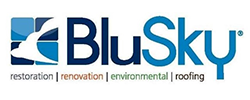Fall Ideal Time to Inspect Roofs, Perform Preventive Maintenance
|
For property owners and facility managers, premature roof failure equals unexpected and often significant expenses. According to Western Specialty Contractors’ roofing experts, the neglect of preventive maintenance is often the cause of premature roof failure. "Roofing materials such as BUR, TPO, EPDM, PVC, Modified Bitumen and even green roofs can be vulnerable to environmental stressors such as organic debris, growing vegetation or ponding water," said Keegan Tune, Western Specialty Contractors' St. Louis Roofing Branch Manager. "Other contributors to premature roof failure may include poor craftsmanship, improper flashing, clogged or leaking downspouts, or damage by other contractors." When roofs are not maintained properly, open seams, splits, blistering, wrinkling and cracking can result, which can lead to expensive damage to a building's interior and exterior, if not identified and repaired promptly. Tune recommends a roof inspection by an experienced roofing specialty contractor at least twice a year, preferably in the spring and fall, and after severe weather, such as hail, heavy rains and high winds, to check for any roof damage. A great way to begin any roof preventive maintenance program, said Tune, is to create a file of all records related to that roof, which may include warranties, repairs and maintenance, past inspections, and original drawings and specifications for the building. "Keep in mind that the ultimate goal of the preventive maintenance program is to get the maximum service life out of the roof, for the least possible cost. So, keeping accurate records of each roof's history is vital to its overall maintenance," said Tune. There are several basic preventive measures that facility managers/owners can perform throughout the year to extend the life of a roof and deter water infiltration, including:
Download Western’s FREE Roof Visual Guide: https://westernspecialtycontractors.com/roofing-terms-checklist/
|
||
|
About Western Specialty Contractors
Family-owned and operated for more than 100 years, Western Specialty Contractors is the nation’s largest specialty contractor in masonry and concrete restoration, waterproofing and specialty roofing. Western offers a nationwide network of expertise that building owners, engineers, architects, and property managers can count on to develop cost-effective, corrective measures that can add years of useful life to a variety of structures including industrial, commercial, healthcare, historic, educational and government buildings, parking structures, and sports stadiums. Western is headquartered in St. Louis, MO with 30 branch offices nationwide and employs more than 1,200 salaried and hourly professionals who offer the best, time-tested techniques and innovative technology. For more information about Western Specialty Contractors, visit www.westernspecialtycontractors.com. ###
|
Submitted: 11/05/24
Article By: Western Specialty Contractors















